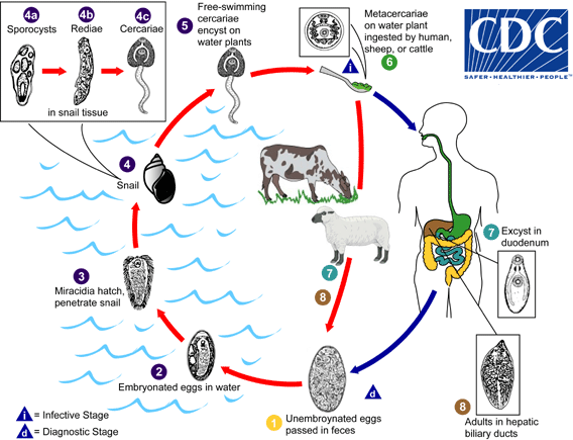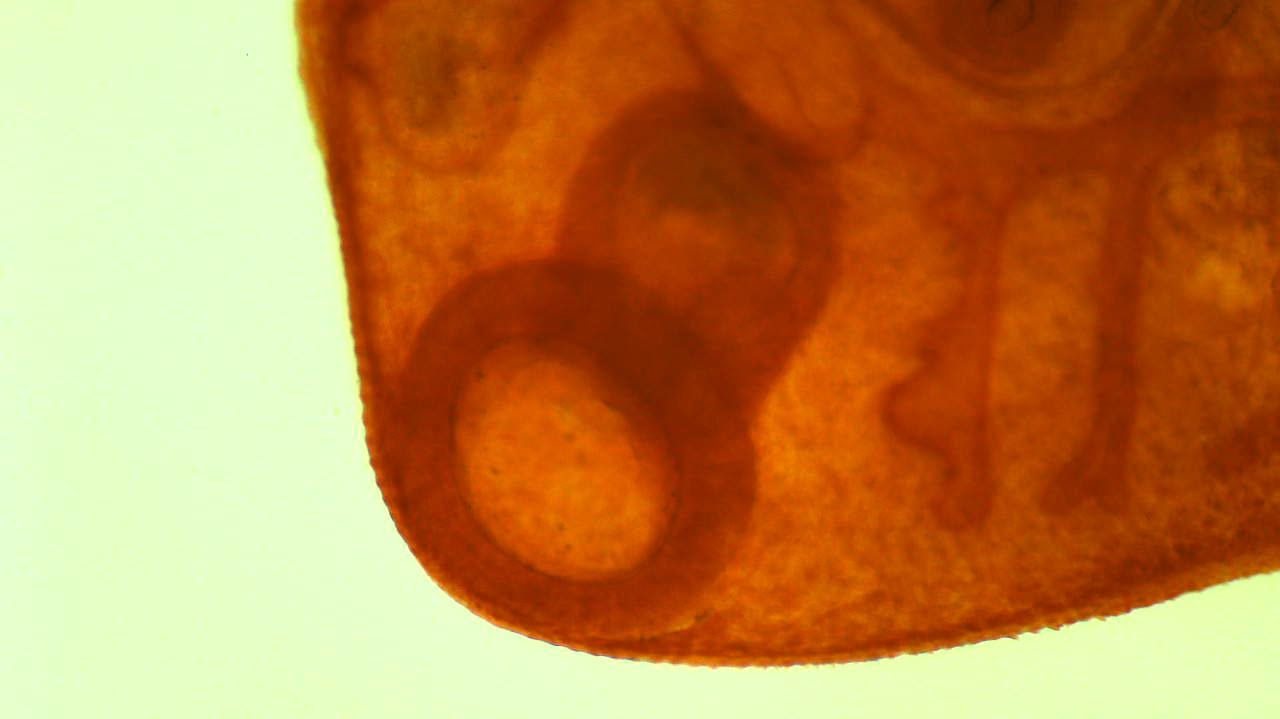Fasciola hepatica

The common liver fluke (Fasciola hepatica) is a species of trematoda, phylum platyhelminthes (fluke) of the Digenea subclass, characterized by its lanceolate shape, with two suckers, one ventral and one oral, and it has a biological cycle with two generations (digenea) in two hosts, an amphibian gastropod mollusk and a mammal. It is a parasite with two bile ducts and the gallbladder of herbivores and omnivores, including humans; this agent is responsible for one of the most widespread parasitosis, in cattle, fasciolosis, which is considered to be one of major parasitic diseases of domesticated ruminants in the world.
Apoyo a acciones de Innovación Docente – Vicerrectorado de Estudios / Consultas e incidencias técnicas- Tlf: 96 522 2059 –
 CYCLE
CYCLE